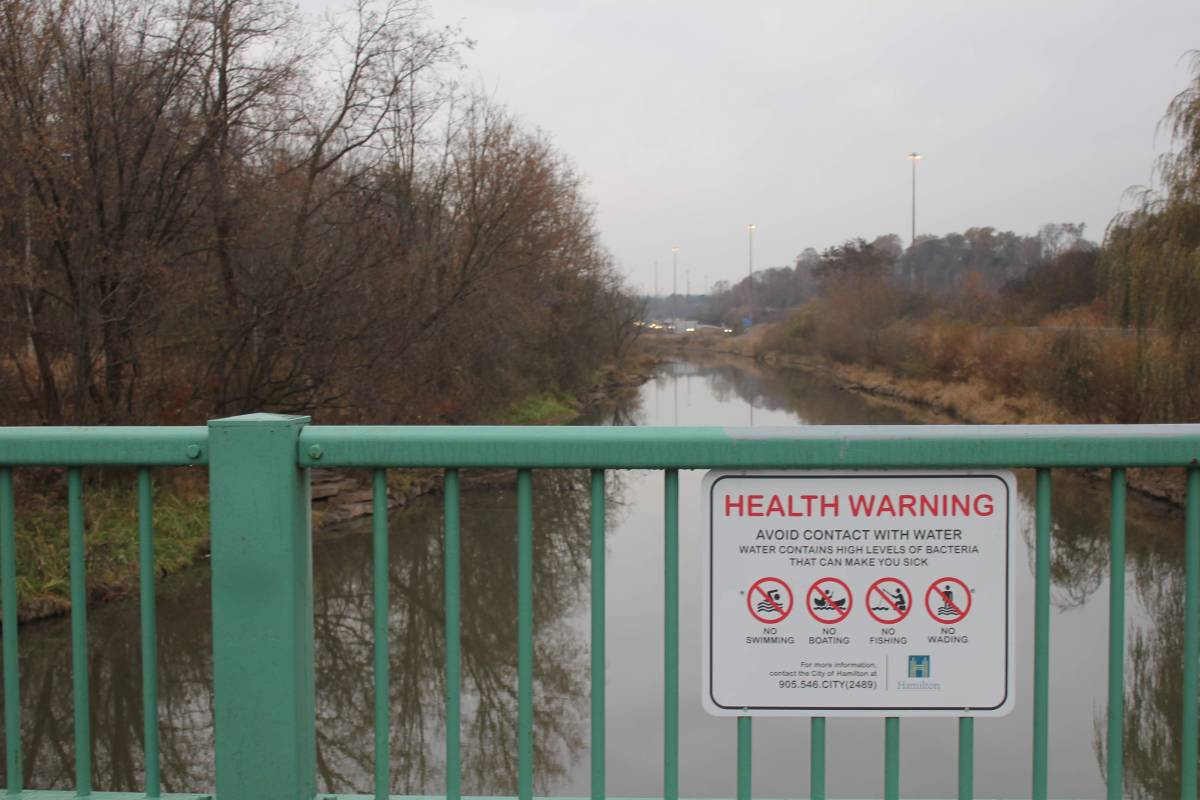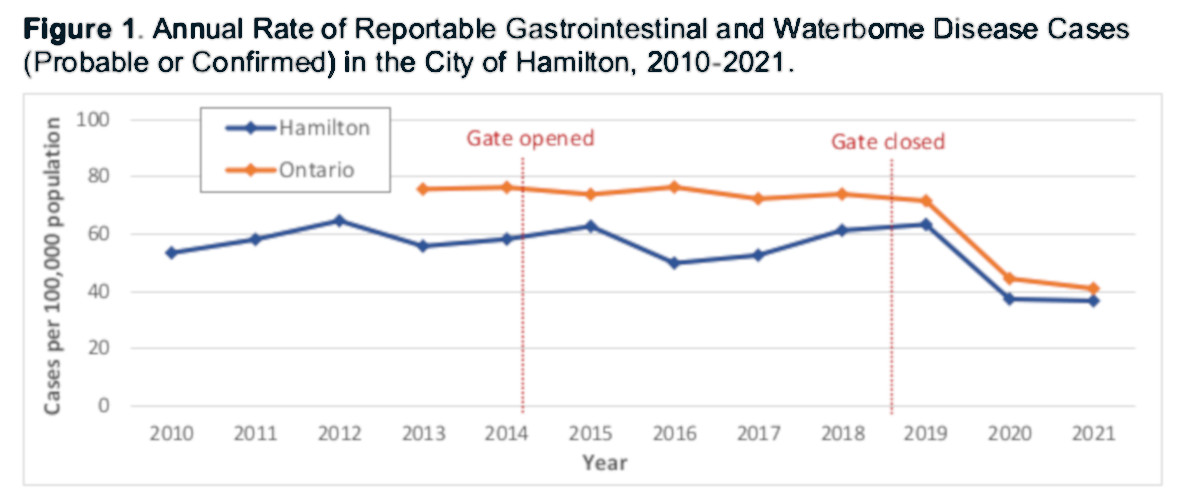There has been some good statistical news relating to the spill of sewage and untreated wastewater into Chedoke Creek.

A Hamilton Public Health Services assessment of gastrointestinal and waterborne infections shows no increase in cases during the duration of the massive spill, which stretched from 2014 through 2018.
Public Health Sciences Director Jordan Walker presented the findings to city councillors on Wednesday, based on emergency department and public health data, from 2010 through 2019.
“We did not notice any trends that would indicate any changes or illnesses associated with the Chedoke Creek spill,” stated Walker.
He added that the findings are only coming forward in 2023 after being delayed by staff redeployments during the COVID-19 pandemic.
Stoney Creek Coun. Brad Clark stressed that the findings do not dismiss the seriousness of the spill, or the city’s commitment to preventing it from happening again.

Get daily National news
“I don’t want any resident who sees this in the news or listens to this to think, ‘well they just dismissed my sickness,'” said Clark, “we’re not.”
Council also formally received updated orders from Ontario’s Ministry of Environment, Conservation and Parks (MECP) which gives the city until Oct. 31 to complete targeted dredging of the creek.
The city hopes to remove close to 11,000 cubic metres of contaminated sludge through a $6-million initiative it originally said would take six months to do and be completed by the end of 2022.
The project encountered a stoppage via Indigenous demonstrators who contested improper consultation in keeping with local treaty rights.













Comments